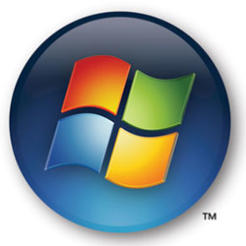Microsoft has changed its pricing framework for software lisences so that to qualify for its 10 per cent charity discount, organisations must receive at least 10 per cent of their income from donations.
The change comes into effect on 30 September and will mainly affect housing associations and social enterprises that rely on public sector contracts. Such organisations will instead be eligible for Microsoft’s 'public sector' framework, although Microsoft could not tell civilsociety.co.uk what level of discount this would offer organisations.
Under the current pricing structure Microsoft defines charitable organisations as “a not-for-profit charitable organisation whose aim is (a) the relief of poverty, (b) the advancement of education, (c) the advancement of social and community welfare, (d) the advancement of culture, or (e) the protection of the natural environment”. These organisation are eligible for its highest discount as an 'educational' user.
Charities with fewer than 50 computers can currently access a range of free Microsoft software products though the Charity Technology Exhange, which charges a small administrative fee.
But Keith Saunders, ICT manger at North Star Housing Group said that, when the new framework comes in, his organisation will lose its voluntary organisation status.
He was informed by his software licensing providers and to avoid the increase has opted to buy licenses for upgrading the group’s servers’ operating system, Microsoft Exchange and Office, ahead of schedule. The group paid circa £11,000 for the new licences, which Saunders said would cost “four times as much if we had waited”.
“In the longer term we are considering moving away from Microsoft and using open source options,” he added.
Social Enterprise UK welcomes changes
However not all organisations are concerned by the changes.
Microsoft spokeswoman said: “Our new discount frameworks recognise the increasing importance of the UK’s 70,000 social enterprises in driving public services. The new frameworks for social enterprises complement the discounts and free options already available to 174,000 UK charities, as well as public sector organisations and public sector mutuals.”
Social Enterprise UK told civilsociety.co.uk that it broadly welcomed the changes as many of its members currently have to pay commercial rates.
A spokeswoman said: “While around 30 per cent of our members have a charitable structure in some way, the other 70 per cent were previously having to pay commercial rates for Microsoft software. While this didn't have a huge impact for start-ups, the effect for some of the bigger mutuals and social enterprises spinning out of the public sector was potentially very significant.
“Especially as those organisations were previously able to access the public sector licensing; so, for those organisations (and the government's mutuals agenda), and for our more general social enterprise membership, this is very good news.”
She added that the umbrella body had spoken to some its members who were also charities and that no concerns had been raised so far.









